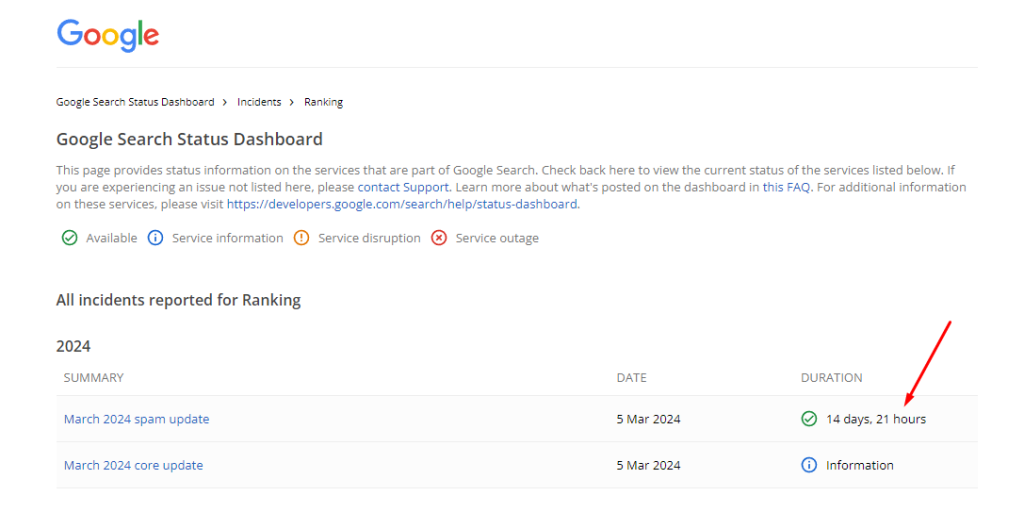Quick rundown of who came out on top and who lost in the Google March ’24 Spam Update
So the March ’24 Spam Update is officially done (still some refining to do on the Core Update element, which remains ongoing). There seems to be a few key differences between the sites that won and the sites that lost in this one:
- User Generated Signals, particularly from Reddit, continue to rise. Reddit and Quora now have 3x more signals than all other sites combined.
- LinkedIn Pulse articles, particularly for affiliate marketing, still appear high in search results but some of the ‘parasite SEO’ strategies (where people are piggybacking off LinkedIn’s High Domain Authority > Publish Article > Appearing at top of SERPS) is maybe getting a nip in the bud. See below tweet from @TalebKabbara via X – “In the past 7 days alone, LinkedIn pulse articles lost 16.8M in organic traffic.”.
- Discussions and Forum content seem to be rising in prominence. VerticalScope, for example, own nine of the top 100 domains overall and posted yearly record audiences and profits.
- Authority Signals won again. Similar to the last few updates. Inbound links from other authoritative websites made the difference to keep a lot of high ranking independent websites on top.
- Brand signals from the brands own websites have increased. Hoka’s website, for example, now dominate the search rankings for their own stuff, compared to third party websites reviewing and talking about Hoka shoes.
- New Shopping features, particularly carousels of product images taken directly from publisher’s sites, are appearing in search rankings. Expect more organic traffic for eCommerce websites.
- The Question-and-Answer format of sites seems to have been hit hard. Those niche site owners taking long-tail keywords with low competition and answering it under headings look to be floundering.

Still a lot of analysis and discussions ongoing around this topic, and likely to be for some time, but it seems we can make two big takeaways: content and discussion from real users, particularly in forums and communities, is a big asset for any site in the future.
Secondly, those sites that simply wrote ‘SEO Content’ (take a list of keywords from SEMRush/Ahrefs, write pages about it) were hit the hardest. That second element is explicitly mentioned in Google’s fundamental guidelines on creating ‘Helpful, People-first Content’, so ya can’t say you weren’t warned.

With more than 20 years of publishing experience and formal study to an MA level, Adam is an expert in digital publishing strategies. Adam is the founder and lead consultant at Alphamorr, where he helps digital publishers and media groups to set and achieve their goals. Adam’s experience includes leading sales team in fast-growing organizations covering Adtech for some of the largest websites in the world & enterprise software deployed with world-leading organizations, both public and private.


4 Responses
ah I had a little site I was running with 100% content written by me and it got hit badly in these updates. Oh well, was only a fun thing but still a bit disheartening.
Feel free to email the site to adam[at]alphamorr.com, be interesting to take a look
Thanks for this. I’m still reeling a bit from some of my side project sites ‘losing out’, as you say. Maybe time to stop relying on Google quite so much
It depends on the topic of your site, to be honest. No getting around the fact that Google dominates the search market, sending 80% of all clicks globally to content sites, but there’s definitely a case for diversification. I recommend thinking about the typical user profiles of people on alternative search engines. Bing, for example, tends to cater to mostly older readers who don’t change the default search on their Microsoft Edge browser. So if you have a site that performs well in older demographics (relationship advice, horoscopes, lifestyle, gardening, hobbies etc) then you’re definitely wise to be thinking about Bing/Yahoo optimization.